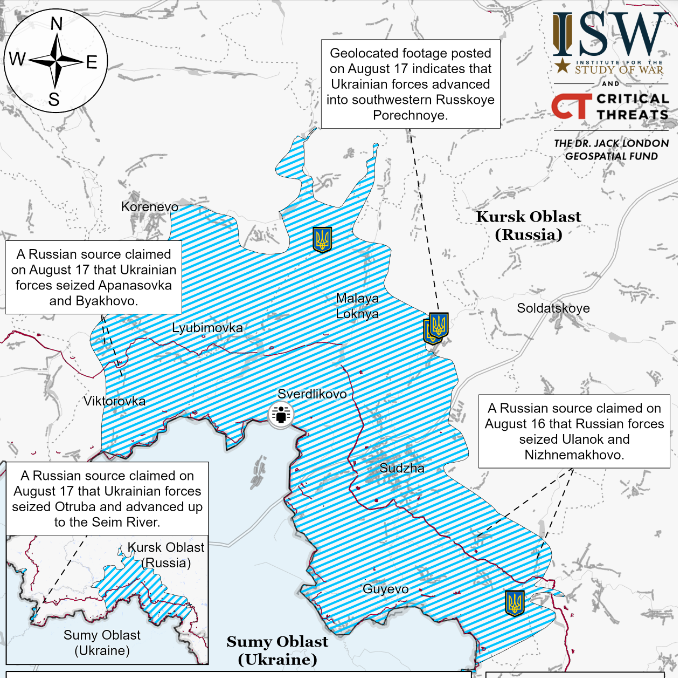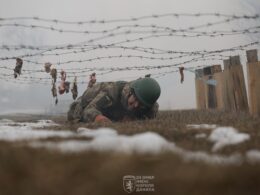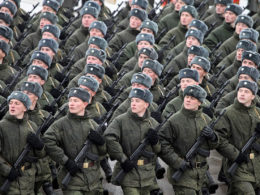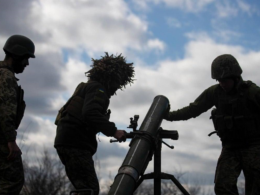The Institute for the Study of War (ISW) released a report on 17 August examining the challenges of restoring maneuver warfare in the ongoing war between Russia and Ukraine.
In their report titled "Ukraine and the Problem of Restoring Maneuver in Contemporary War," Dr. Frederick W. Kagan and Dr. Kimberly Kagan argue that the scale of the war prevents either side from achieving a decisive victory in a single campaign.
According to the ISW, Ukraine and Russia have demonstrated the ability to establish deep defensive positions and reserves, making it difficult for either side to achieve strategic war aims before their offensives culminate.
"Russia's and Ukraine's ability to generate enough combat power to man continuous defensive positions with no open flanks and establish tactical depth at significant points along the frontline has forced both sides to attempt penetration battles that are so costly that subsequent exploitation is often not feasible," the report states.
The analysis highlights a notable exception where Ukraine exploited an open flank in Kursk Oblast. However, the ISW notes that Russia has sufficient combat power to cover its frontiers if it chooses to do so, albeit at the cost of pursuing other objectives.
The report emphasizes the importance of campaign design in this context.
"Effective Ukrainian and Russian campaign design therefore requires forethought and planning for multiple successive operations that each set conditions for the subsequent operation," the ISW explains.
However, the analysis shows that conducting successive operations without interruption has been rare for both sides.
The ISW observes that operational pauses or decreased operational tempo have often provided opportunities for the opposing side to contest and seize the initiative. This dynamic has contributed to the prolonged nature of the war and the difficulty in achieving decisive outcomes.
The report suggests that the current state of the war in Ukraine presents significant challenges for both sides regarding military strategy and operational planning. The ability to establish strong defensive positions and the high cost of penetration battles have reshaped the nature of the conflict, requiring a more measured and sequential approach to military operations.
Read also:
- The Times: UK awaits US approval for Ukraine to use Storm Shadow missiles in Russia
- WP: Qatar-mediated Ukraine-Russia negotiations postponed after Kursk incursion
- Ukraine’s Commander-in-Chief Syrskyi reports progress in Kursk Oblast operation





